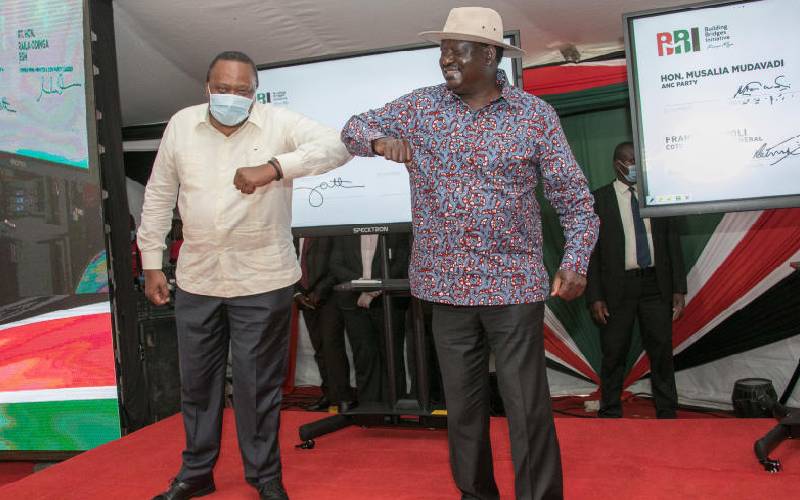×
The Standard e-Paper
Fearless, Trusted News

President Uhuru Kenyatta and ODM leader Raila Odinga during the National launch of the BBI signatures collection exercise at KICC in Nairobi County.
The High Court yesterday blocked the Independent Elections and Boundaries Commission from subjecting the Building Bridges Initiative Bill to a referendum, throwing the Constitution changing process in limbo.